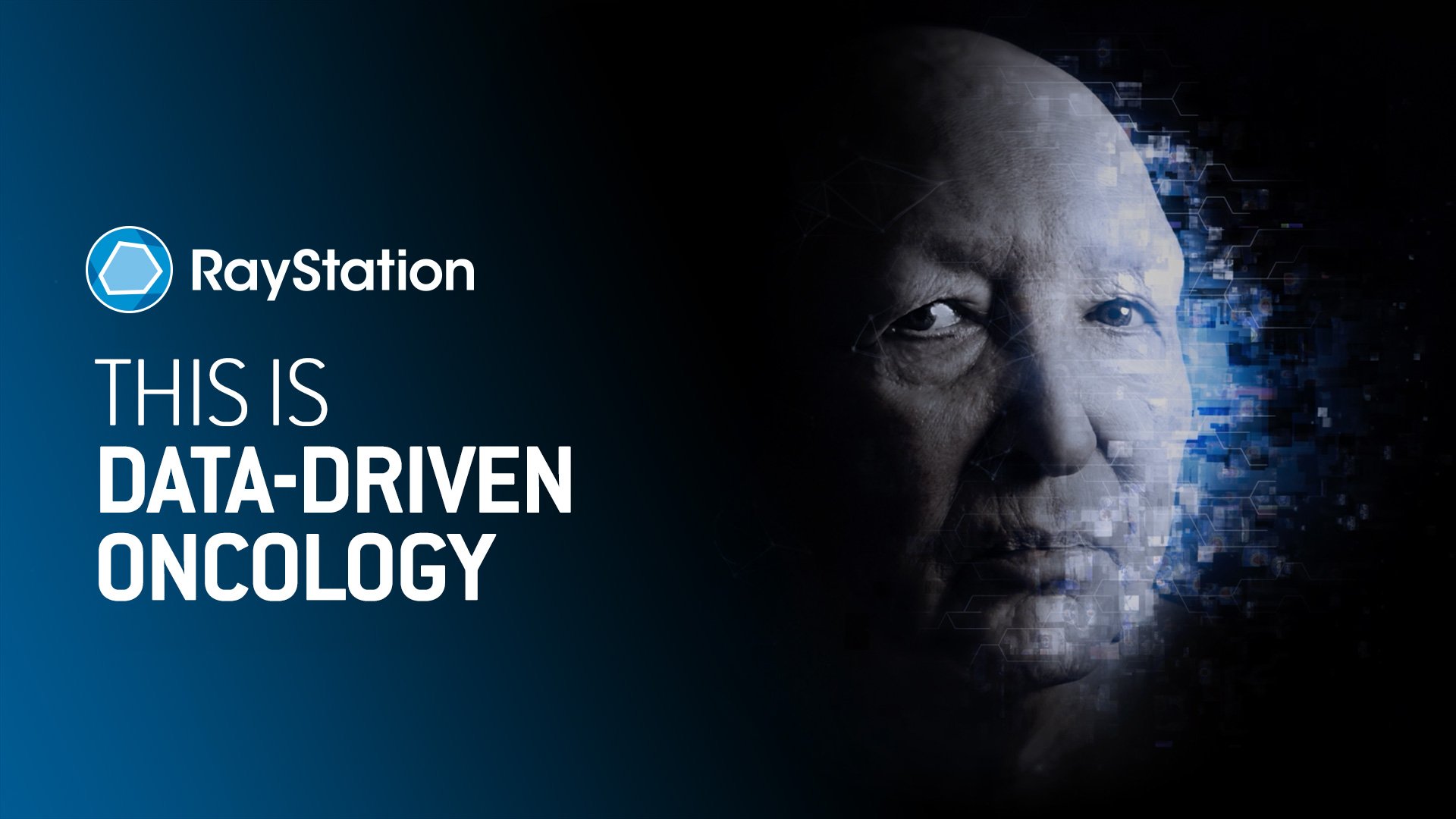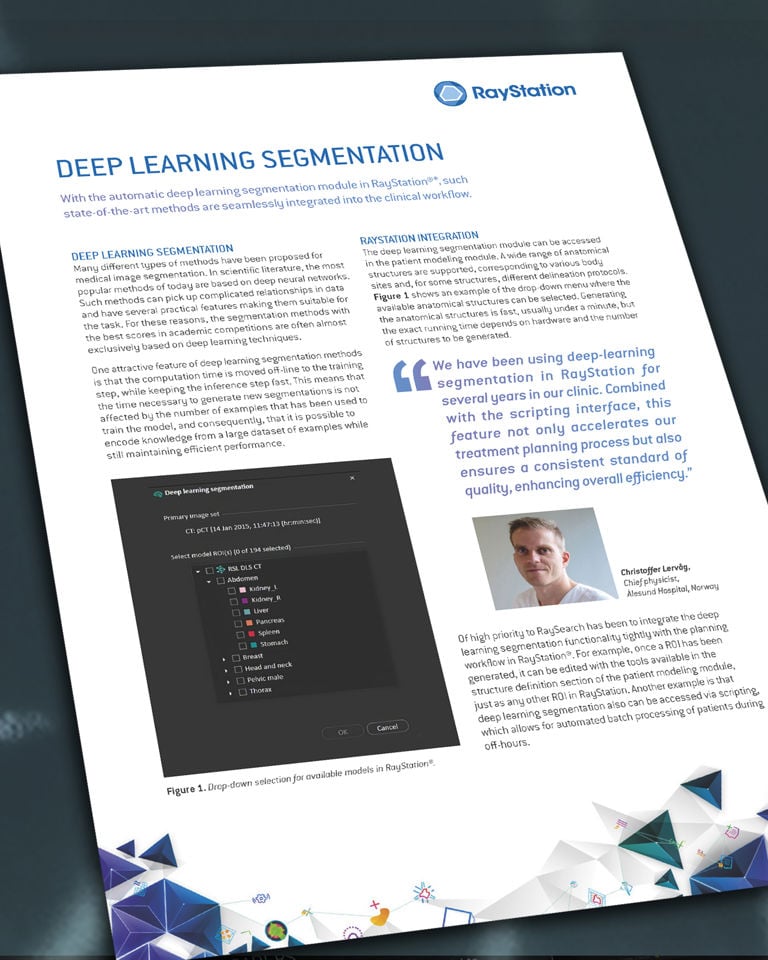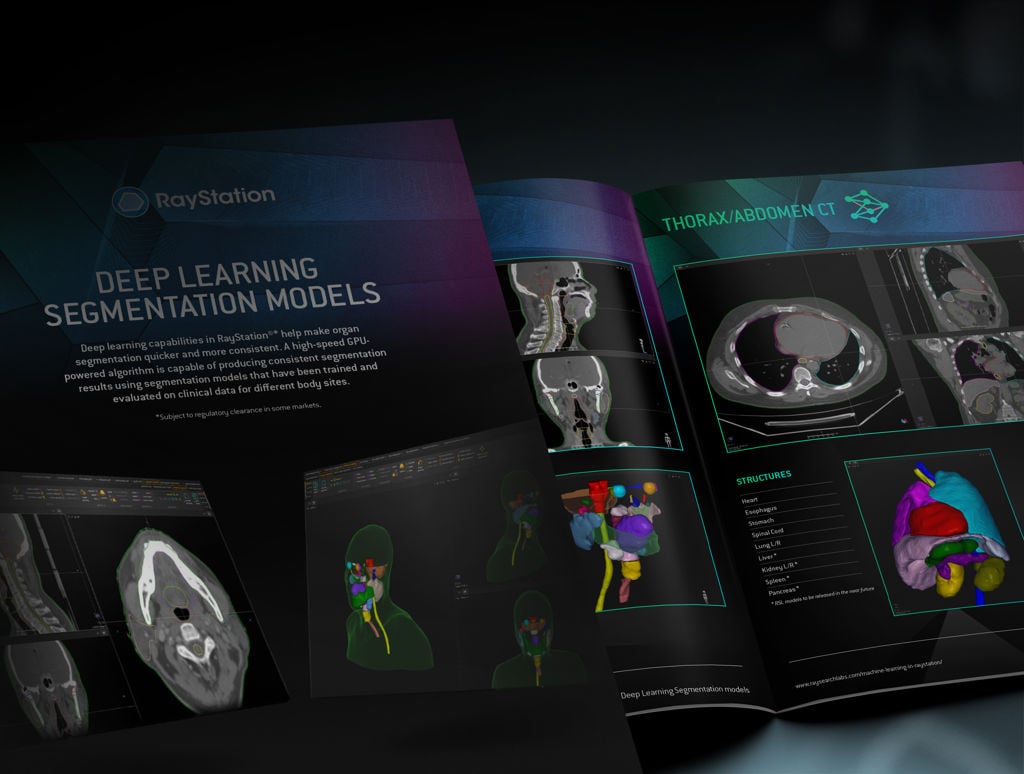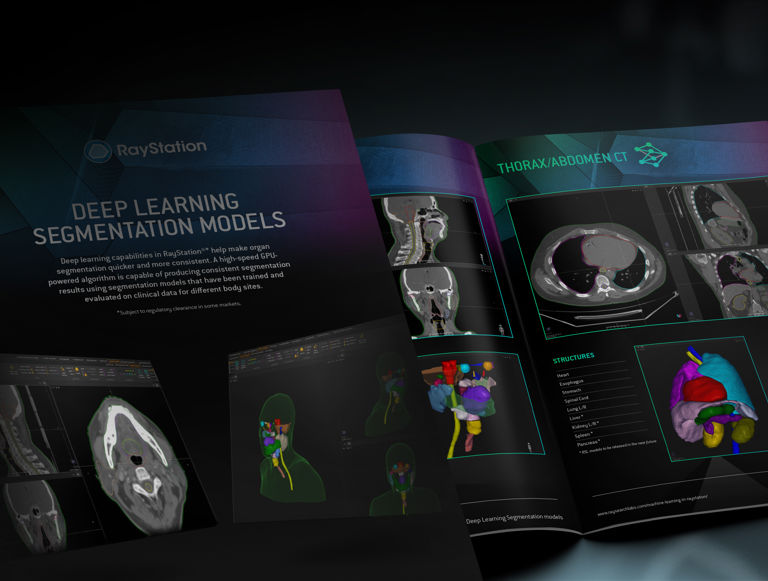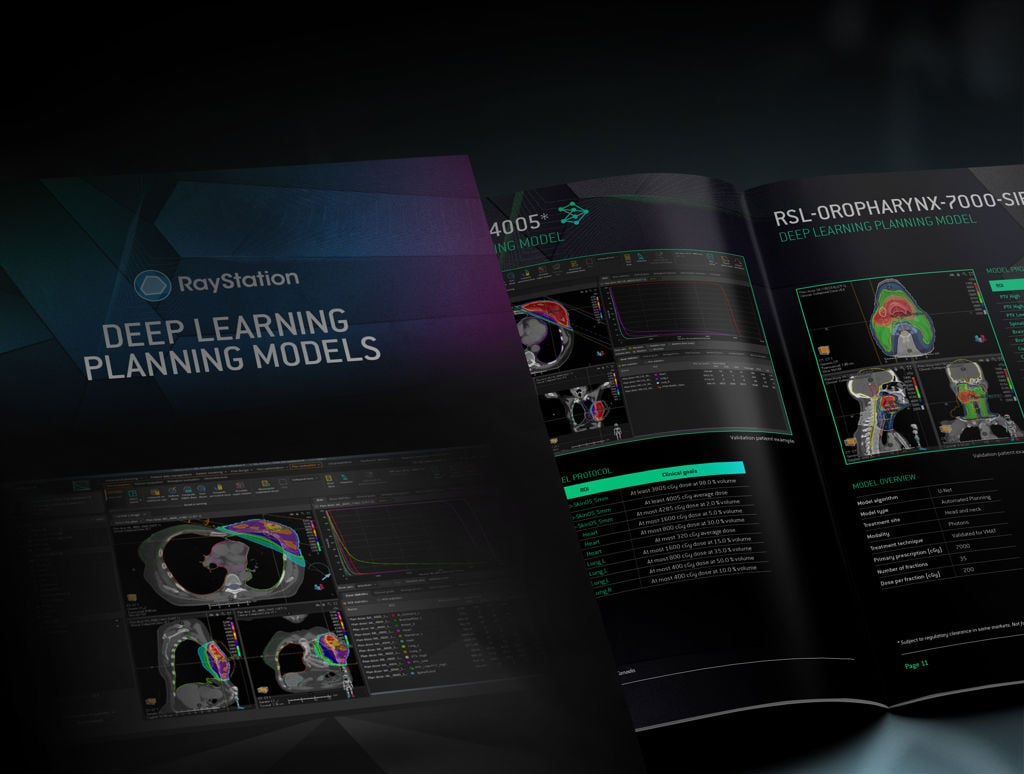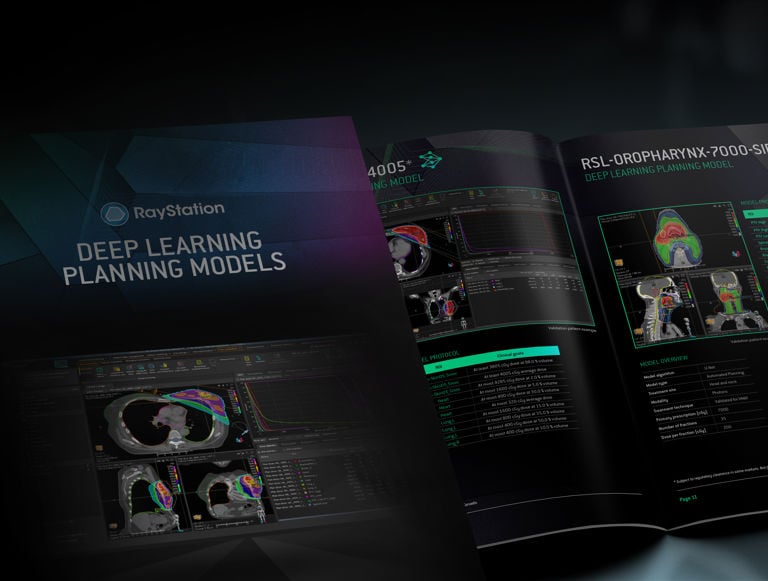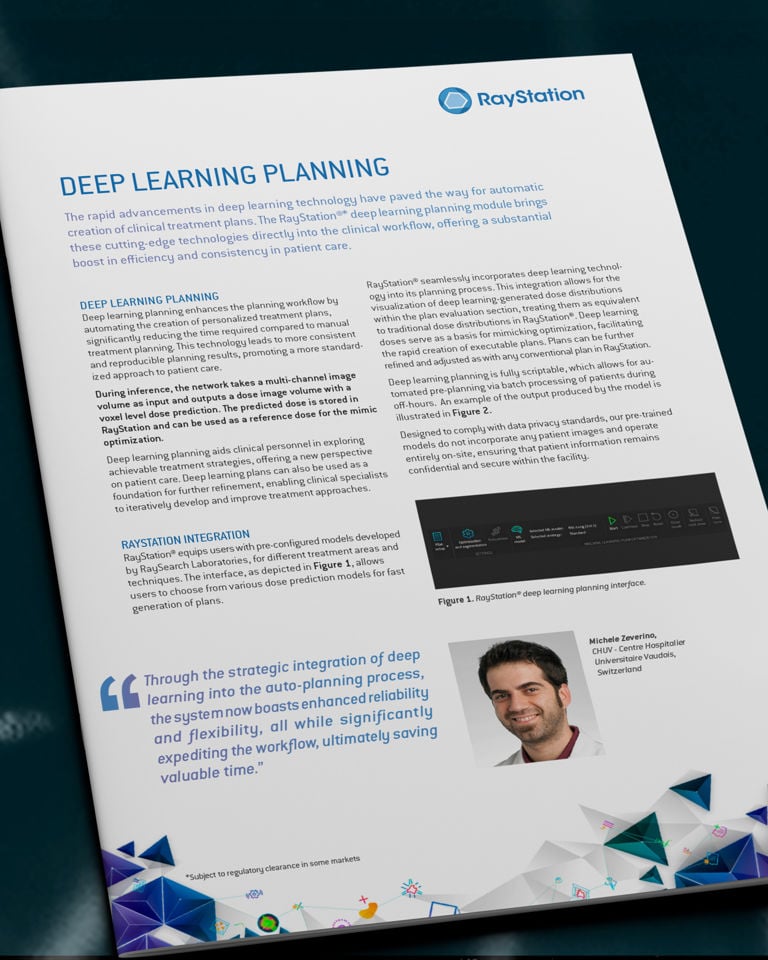Machine learning for intelligent treatment planning
Cancer treatment represents one of the most exciting applications of data analytics and machine learning technologies. Machine learning already supports the identification of diseases and diagnosis, through to treatment planning and aftercare. By analyzing thousands of different data points, advanced algorithms in RayStation* can help clinics save time and increase consistency by automating plan generation and organ segmentation.
*Subject to regulatory clearance in some markets.
